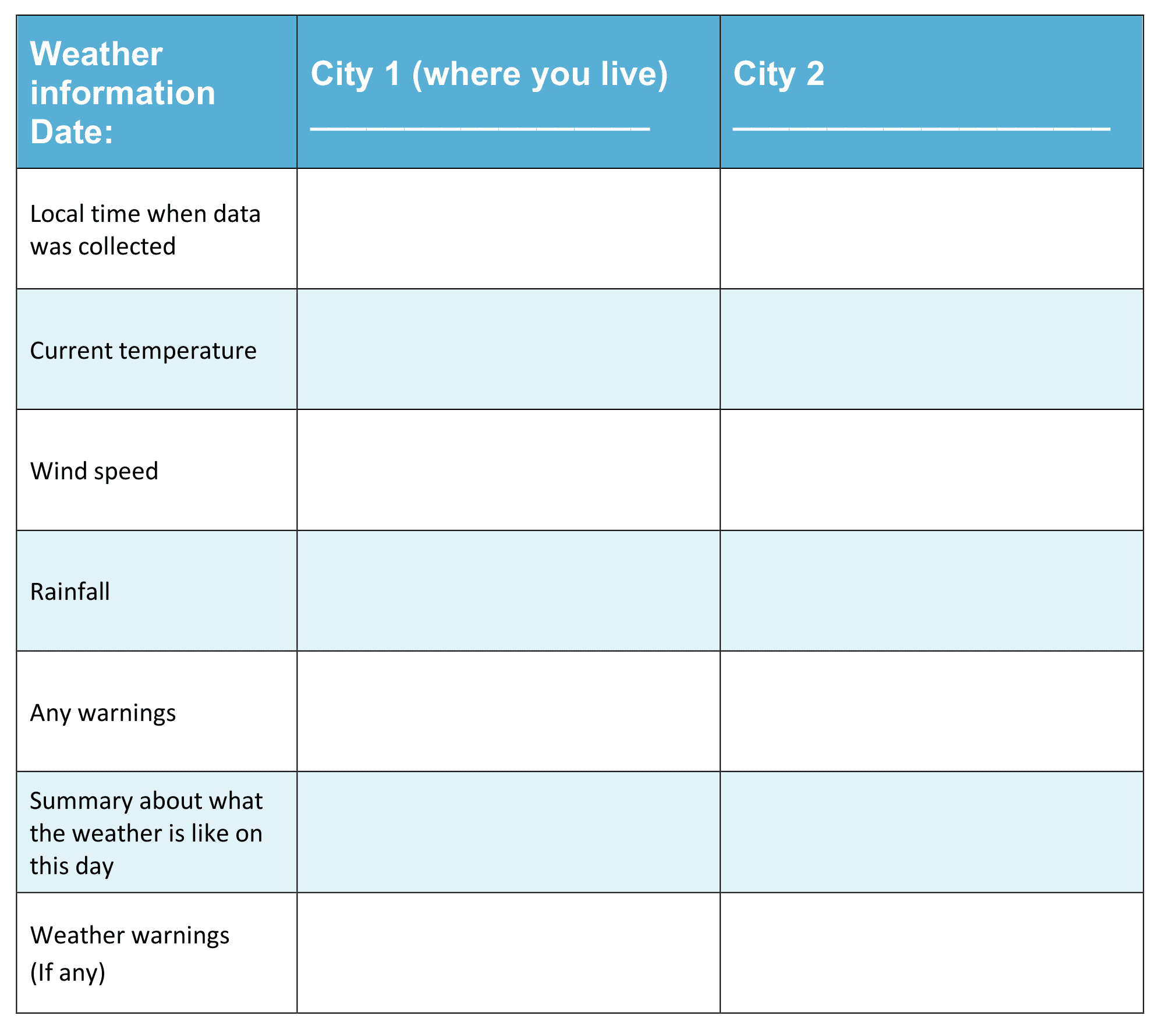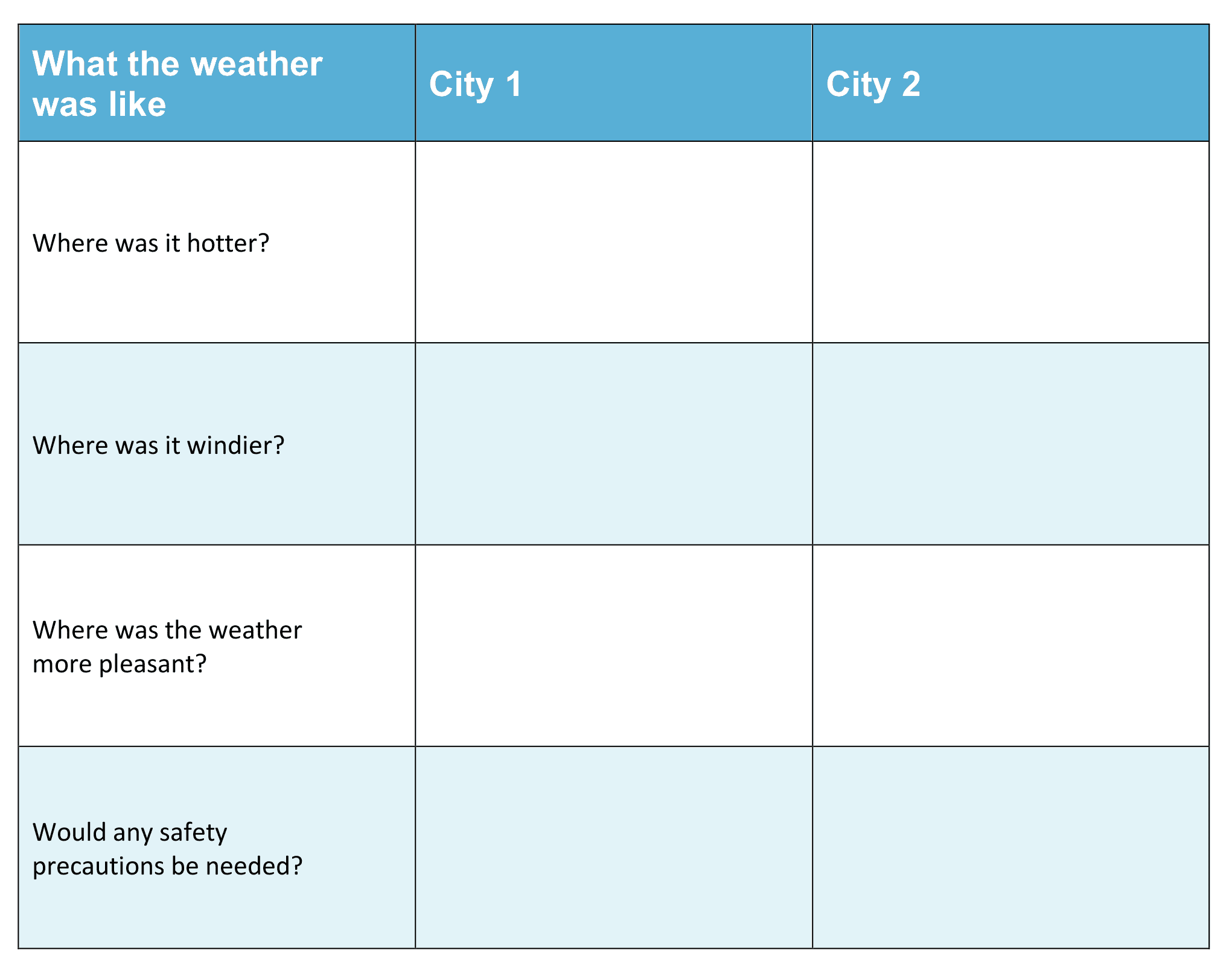Information for Teachers
Curriculum links
This investigation is linked to the following Grade 3 Next Generation Science Standards.
ESS2.D: Weather and Climate
Scientists record patterns of the weather across different times and areas so that they can make predictions about what kind of weather might happen next. (3-ESS2-1)
ESS3.B: Natural Hazards
A variety of natural hazards result from natural processes. Humans cannot eliminate natural hazards but can take steps to reduce their impacts. (3-ESS3-1)
How to search the internet
1 Keep your request short
Fewer words will give a more accurate search.
2 Choose exactly what you want
For example: Arctic Circle Climate
3 Use quotes
Double quotes around a set of words tell the search engine to consider those exact words in that exact order without any change. For example: “Arctic Circle Climate”
4 Use the plus sign (+)
If you add a plus sign (+) between words, the internet will search for all the words. For example: migrate+birds+whales+mammal
5 Use the minus sign (–) to say what you don’t want
Use a minus sign (–) to show words you do not want to appear in your results. For example: if you search for burrowing animals and do not want mammals in your search, –mammals will exclude mammals. Note that you need to put a space before the minus sign for the word to be excluded.
6 Be very clear about what you don’t want
Part 1
Ask questions and define problems
After reading The Weather Today, you may have many questions about the weather.
List your questions
- Compare your list with questions that others have.
- Choose a question you would like to investigate.
- You can work alone, with a partner, or in a small group.
You may want to choose one or more of these questions to investigate
Q1. What is the weather like today where you live?
Q2. What is the weather like in other parts of the world today?
Q3. Why is weather different in different places on the same day?
Go to Part 2 Investigate →Part 2
Investigate
Helpful websites
You may want to use websites to help with your investigations.
The World Meteorological Organization home page has a useful map that you can click on to see current weather conditions and weather information for places all around the world.NASA has useful explanations about different weather conditions and the relationship of weather to the climate. You can use these search words: city name + weather, weather forecast, weather radar, weather warnings, climate, weather forecast, weather records.
Go to Part 3 Record data →Part 3
Record data
Find a way of recording your information that will allow you to see any patterns in the data.
Collect data for a week about the weather in the cities you are comparing.
Data Chart for comparing weather in different cities
 Download Chart
Download Chart
Go to Part 4 Organize, analyze, and interpret data →
Part 4
Organize, analyze, and interpret data
1. Look over the information you have gathered and the patterns you have found.
What is the weather like in each city?
Where was it hotter or colder? Where was it windiest?
Which city had the most pleasant weather?
What safety precautions would need to be taken in each place?
Where would you have preferred to spend the week?
2. Search for other patterns.
What does this information tell you about what the weather might be like for the next week in each city?
Why is the weather different in different parts of the world?
3. Makes notes about what you find.
Go to Part 5 Present and share →Part 5
Present and share
Look over all of the information that you have gathered in your investigation.
What are the most important ideas about your topic?
Make a chart showing the most important ideas.
 Download Chart
Download Chart
← Return to menu